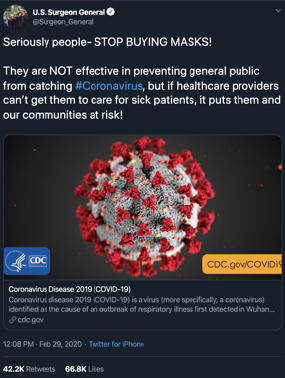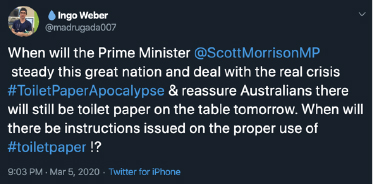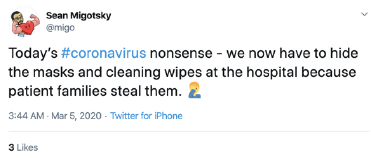What HCPs think about shortages from COVID-19
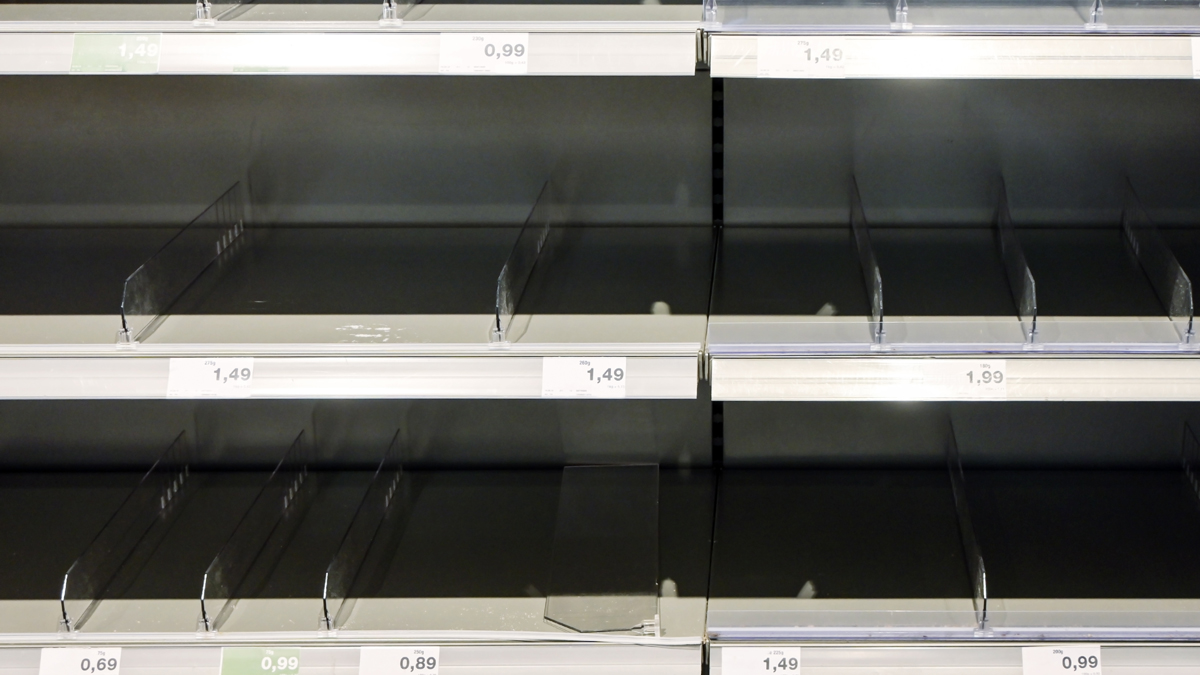
Much has been said about COVID-19 by healthcare professionals (HCPs) online: the most recent issue to grab their attention has been shortages caused by stockpiling or panic buying.
Listening to the conversations of HCPs related to COVID-19, I started to see this trend emerge in the middle of February. In total between 21st February and 12th March I saw over
30,000 tweets published by more than 16,000 HCPs globally on the subject. Conversation levels increased steadily during the second half of February but then grew rapidly to often more than 2,000 posts per day at the beginning of March.
Items out of stock
There has been shock and disbelief at the type of items being stockpiled, a list which, alongside toilet paper, includes items more obviously linked with COVID-19: masks; hand sanitiser; gloves and tissues.
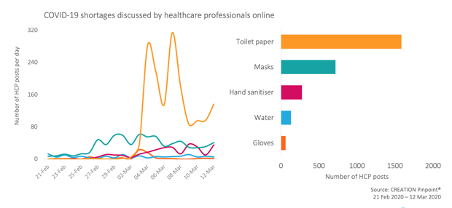
“Stop buying masks”
The top shared article by HCPs relating to this discussion was a communication piece by the Center for Disease Control and Prevention (CDC). The page is found in a new section on the institute’s website entitled Coronavirus Disease 2019 (COVID-19). HCPs were sharing links to the page on prevention and treatment linking this to a plea to the general public to stop buying masks as it goes against CDC recommendations.
The US Surgeon General, Jerome Adams, also posted the link with a passionate cry: “Seriously people- STOP BUYING MASKS!”
He went on to conclude “if healthcare providers can’t get them to care for sick patients, it puts them and our communities at risk”. This was reposted by many HCPs who responded positively to a government official tweeting clear guidance.
However, Adams received criticism from the general public who were disbelieving of his summary of the effectiveness of masks. HCPs responded to these comments to help clarify the Surgeon General’s post, including Charlotte Delbo, a registered nurse in Minneapolis, who brought up the subject of fit testing masks.
Of the many responses to the Surgeon General’s post, only a small percentage were health educators, scientists or healthcare providers, whose sentiment reflected the original post: urgency and even desperation.
Toilet paper shortages in Australia
Shortages have occurred all over the world and HCPs, even in countries that are not experiencing major shortages, have been discussing the situation with their peers online.
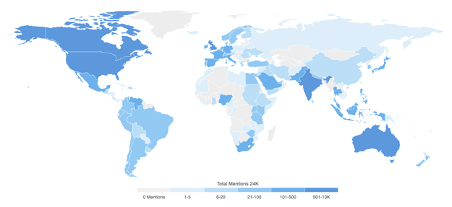
The latest in the list was a major shortage of toilet paper in Australia, seen especially in the large cities. Most HCPs attributed this to panic buying or as Melbourne-based surgical registrar Raf Ratinam called it “toilet paper worry virus”.
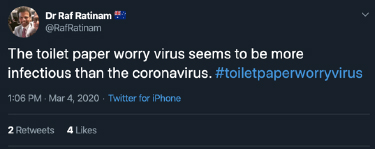
Australian HCPs were on also on social media to discuss the shortages in a light-hearted manner using hashtags such as #ToiletPaperEmergency #ToiletPaperApocalypse and #ToiletPaperCrisis.
Ingo Weber is one such doctor in South Australia who used the hashtag #ToiletPaperApocalypse. Seemingly tongue in cheek, he called for Scott Morrison, the Australian Prime Minister, to reassure the nation regarding the toilet paper situation.
The role HCPs are taking in the COVID-19 discussion online
There is a real need and concern that HCPs are trying to address. The second most shared resource by HCPs was the World Health Organisation’s page: Coronavirus disease (COVID-19) advice for the public: When and how to use masks. HCPs continue to seek to educate the public by sharing resources like this.
There have been mixed reactions to the shortages. Some HCPs are exasperated and in disbelief of the actions of others, like in the instance of stockpiling and panic buying. Others are trying to make light of these situations, especially prevalent in the toilet paper shortages in Australia.
Combatting disinformation is key
The opportunity for HCPs however, which we have also seen, is to bring the practitioner's point of view to the noise of social media in the midst of all the disinformation being shared and the distrust in medical bodies and governments.
As they have done and are still doing with the anti vaccination movement, HCPs are using their online presence to spread accurate science and medical information, bringing a voice of reason into a potentially volatile environment.
About the author
 As head of insight with CREATION.co, Jamie Doggett leads a team that discovers what healthcare professionals think by analysing their online social media conversations. Jamie has collaborated with healthcare professionals, marketers and communicators to leverage data for health strategy, and has pioneered new research methodologies using CREATION.co’s global dataset. Research produced by Jamie and his team has informed academic articles, health policy, and product launches all over the world.
As head of insight with CREATION.co, Jamie Doggett leads a team that discovers what healthcare professionals think by analysing their online social media conversations. Jamie has collaborated with healthcare professionals, marketers and communicators to leverage data for health strategy, and has pioneered new research methodologies using CREATION.co’s global dataset. Research produced by Jamie and his team has informed academic articles, health policy, and product launches all over the world.

